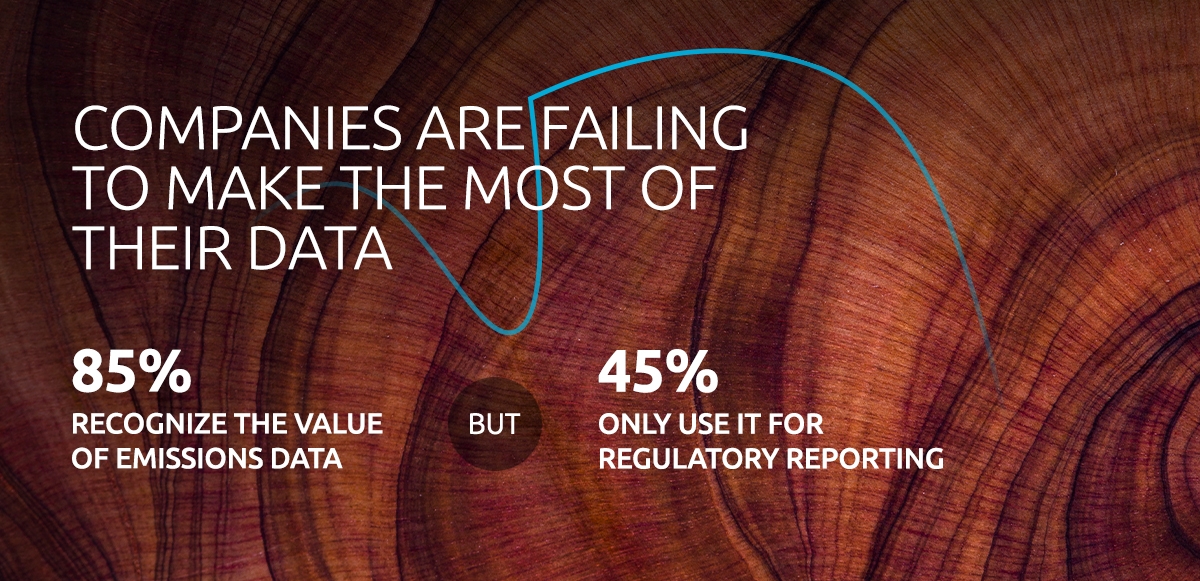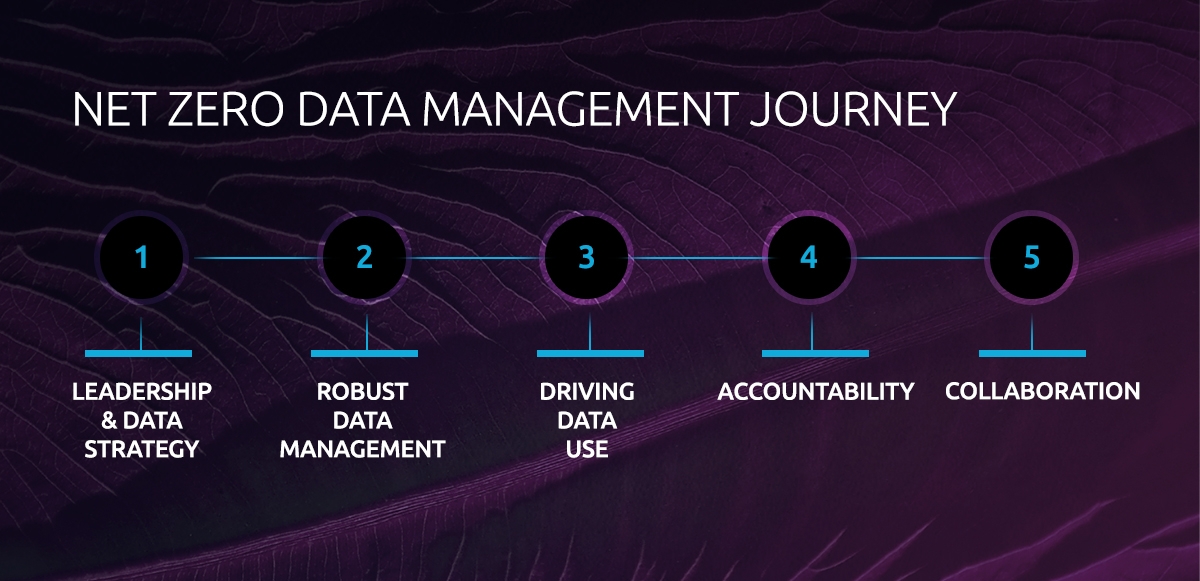To Get to Net Zero, Companies Need More (and Better) Data
Most companies are not collecting the right data to support their net zero ambitions—and lack the skills to make the most of the data they have.
Imagine trying to land an airplane with no information. You have a rough idea of where the airport is, but you don’t know how high you’re flying, what the weather is like or how much fuel you have left. How likely are you to reach your destination?
Most pilots would refuse to board an airplane in these conditions. Yet flying blind is all too common in the corporate world when it comes to climate commitments.
An avalanche of pledges in recent years means that most of the global economy—68% in 2021, compared to just 16% in 2019—is now committed to reaching net zero. The issue is that timelines are relatively short, with a significant minority of companies committing to a 2030 deadline. Even more worryingly, most companies don’t have a meaningful plan to get there or the internal resources to deploy it. According to a recent study by Capgemini, only 43% of companies have set short-term targets, which are critical to maintaining momentum and accountability in the journey to net zero.
A business’s footprint doesn’t stop at its front door
Companies are likely to argue that it takes time to get their houses in order; the same study showed that 33% of businesses were planning to set interim targets in the near term. But how to convert ambition into action is not the only headache facing corporates right now. The other is scope.
The Science-Based Targets initiative (SBTi), which sets the rules on climate commitments, recently published a new Net-Zero Standard that puts the focus squarely on reducing, rather than offsetting, emissions. It also emphasizes the need to include indirect scope 3 emissions in net-zero commitments. These include emissions from factories and trucks in a company’s supply chain; from the cars used by employees to travel to work; from energy used in stores; and from product use and disposal.
Most organizations have not yet committed to tackling these hidden emissions. This is a major cause for concern given that scope 3 emissions account for 65%–95% of a company’s carbon footprint.
To turn ambition into action, you need reliable data
The challenge is how to bridge the gap between net-zero ambition and actions, particularly when it comes to hard-to-manage scope 3 emissions.
“The role of data is fundamental,” explains Zhiwei Jiang, CEO Insights & Data Global Service Line, Capgemini. “First, monitoring, gathering and reporting data on emissions across all scopes improves understanding of baseline emissions levels and identifies emissions hotspots. Second, data improves existing business processes by streamlining carbon-intensive activities, and helps predict and prescribe business outcomes and identify further emissions reduction opportunities.”
Although 85% of organizations recognize the business value of emissions data, it remains inadequately used. Of the companies surveyed, 45% only use data for regulatory reporting. And among those that do embed emissions data into decision-making, most use it to measure sustainability performance, rather than to predict opportunities or augment operational decision-making with anticipated impacts.

This takes us to the crux of the problem: a fundamental lack of sustainability data maturity and skills across most organizations. This may seem counterintuitive, as businesses fully integrate data for other purposes. For example, they certainly are not flying blind when it comes to financial decision-making or quality control.
But those same companies are not well positioned to use emissions data. Less than one in 12 companies have automated the collection of emissions data, and only 13% have adopted a carbon management solution at scale.
“In short, companies are not measuring emissions adequately,” says Valérie Perhirin, Managing Director, Data and AI, Data for Net Zero at Capgemini. “They lack confidence in the accuracy of the data they collect. And they have not equipped their business teams to use emissions data to make more sustainable decisions.”
Get ready for net zero with the right data management capabilities
For those organizations that do embed data in decision-making, there’s good news: Over half have seen an acceleration in their net-zero journey as well as an increase in transparency. What does good data management look like?

Five critical elements can help accelerate an organization’s journey to net zero (see visual above). The first is strong leadership, embodied by a member of the C-suite and reinforced at the executive committee level. This should be backed by a clear, cross-department governance structure and data strategy.
“A top-down approach is very important because with that, you automatically have key departments like product development, purchasing and manufacturing on board,” explains Wulf-Peter Schmidt, Director of Sustainability, Advanced Regulation and Product Conformity, Europe at Ford, who contributed to the research.
Second, organizations need to set up a robust foundation for emissions data management. This means building platforms to automate data collection, analysis and visualization, and investing in a carbon management and reporting solution.
Next, organizations need to act on their data to reduce emissions; they also need to make teams accountable for decarbonization across the organization. Last and not least, they need to work with suppliers and customers to expand access to reliable data and work on a common plan to cut emissions.
“We are prioritizing areas where our footprint is large and then going deep into the supply chain to get primary data to establish a baseline and develop tailored measures to support our carbon reduction strategies,” says Aurelia Figueroa, Global Head of Sustainability at Breitling.
Fasten your seatbelts and get ready for landing
Data and data skills bridge the gap between ambition and action. Organizations that are getting it right are already reaping dividends on their investment—and those that adopt this approach can also accelerate their net-zero journey. In the same way that financial data literacy is a prerequisite for the majority of corporate jobs today, emissions data and the skills required to exploit it will be essential tools for tomorrow’s top executives. A safe landing is within sight—but not without the right data.
